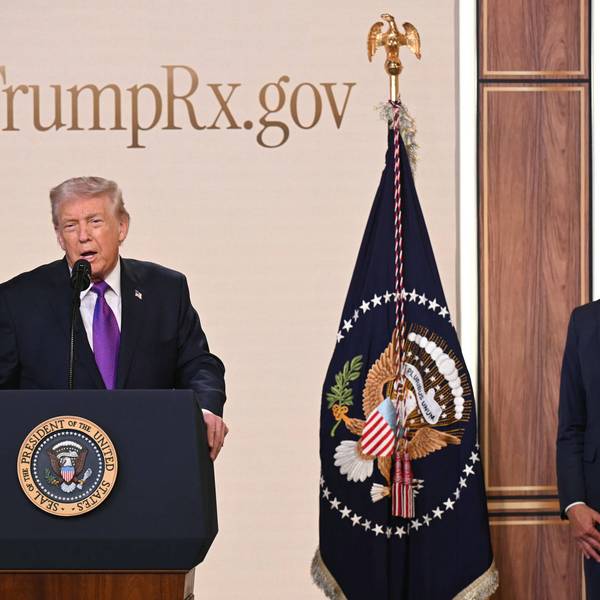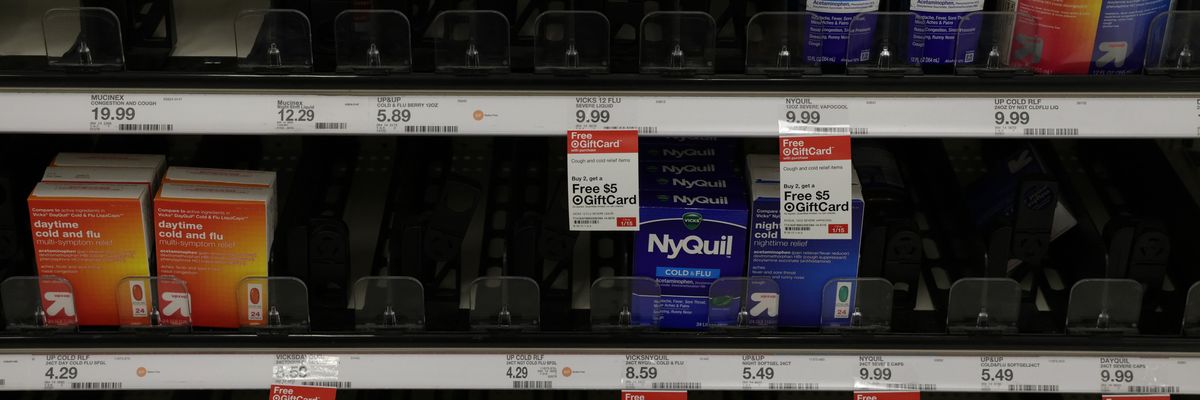U.S. Rep. Ro Khanna led several Democratic members of Congress in calling on the Food and Drug Administration to take more aggressive action to ensure families and healthcare providers have access to common over-the-counter medicines that have been depleted on drugstore shelves across the U.S. this winter.
Despite "round-the-clock efforts from manufacturers" of ibuprofen and acetaminophen, which can reduce fever and other symptoms for sufferers of the flu, respiratory syncytial virus (RSV), and Covid-19, "demand for these medicines is outpacing supply," wrote the lawmakers to FDA Commissioner Robert Califf.
Cases surged late last fall—earlier than in previous cold and flu seasons—leading to shortages, according to retailers and manufacturers. Politico reported last month that drug shortage crises can also be caused by supply disruptions resulting from "companies cutting corners" and shutting down manufacturing lines, misallocation of drug supplies across the country, and hoarding of drugs by wholesalers in anticipation of shortages.
The Centers for Disease Control and Prevention (CDC) is still reporting hundreds of thousands of new cases of Covid-19 per week, as well as hundreds of RSV cases. Seasonal flu activity is currently low nationally, but certain places across the country including New York City, New Mexico, and Washington, D.C. have reported recent case surges.
Honolulu-based journalist Nina Wu tweeted photos of nearly-empty cold medicine shelves on February 6.
Reps. Lisa Blunt Rochester (D-Del.) and Buddy Carter (R-Ga.) last month urged Congress to pass their bipartisan proposal to require the federal government to keep a six-month stockpile of 50 generic medications for common health conditions.
"As Congress works to find a legislative solution regarding rates of production, we believe that the FDA can take further actions to address this issue," wrote Khanna (D-Calif.) in Wednesday's letter, along with Reps. Barbara Lee (D-Calif.), Sara Jacobs (D-Calif.), Jamaal Bowman (D-N.Y.), Bennie Thompson (D-Miss.) and Troy Carter (D-La.).
The FDA has already issued guidance for healthcare providers and pharmacists directing them to make ibuprofen in-house if they have certain ingredients available, but the lawmakers said the agency should also:
- Disseminate updated guidance to pharmacists and healthcare providers regarding available alternatives for pediatric ibuprofen and acetaminophen, including dosage conversions;
- Encourage additional transparency from manufacturers to the FDA regarding supply location and the distribution of consumer demand for pediatric fever-relieving medications, allowing the FDA to help assist manufacturers distribute supply more evenly, preventing such sudden shortages in different areas around the country; and
- Communicate proactively to caregivers regarding the shortage through a public outreach campaign to alleviate concerns and prevent misinformation.
"As cases of pediatric illnesses remain steadily high, a stronger response from the FDA is necessary to ensure that children are able to recover safely and swiftly," wrote the lawmakers.
Khanna noted in a statement to The Hill that his family has "experienced the impact of this shortage firsthand."
"The agency must provide clear guidance to healthcare providers about the steps they can take now to ensure that all children have the medicine they need," he said.




